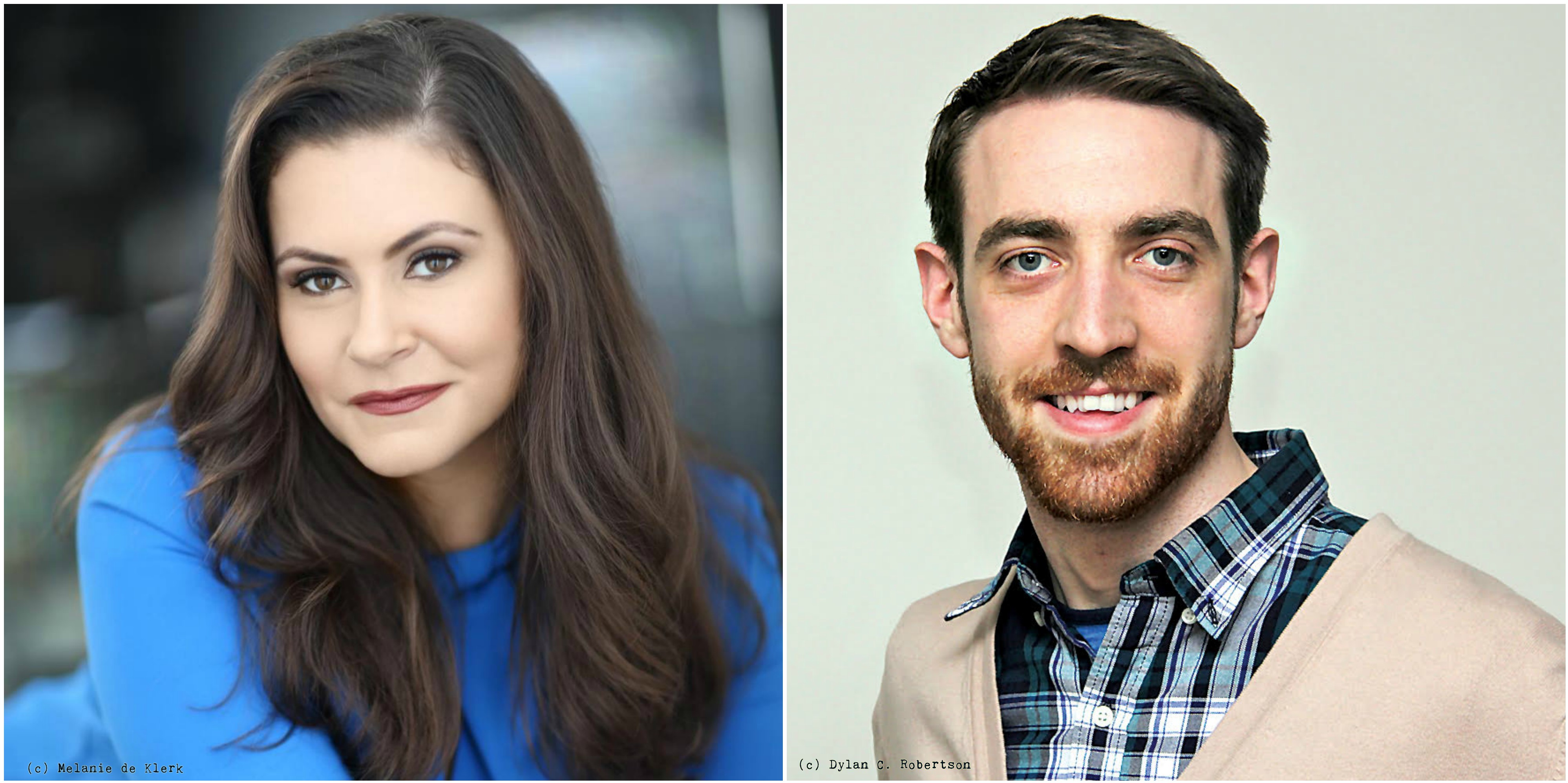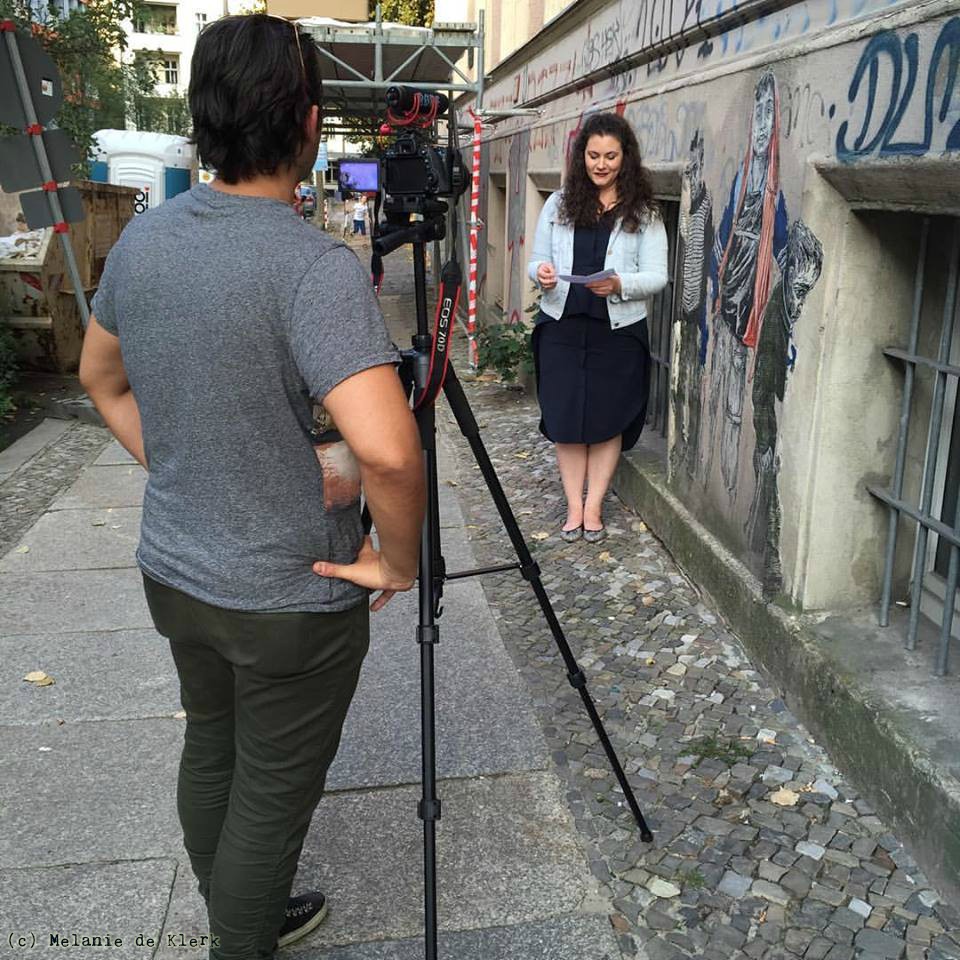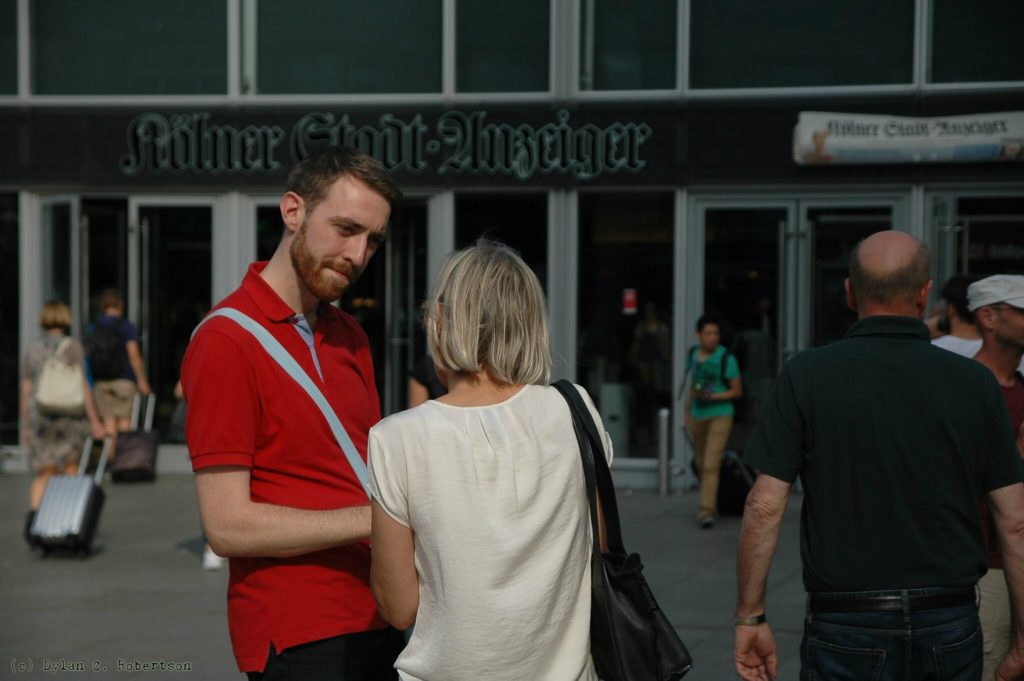
Reporting live from Germany
Canadian media professionals Melanie de Klerk and Dylan C. Robertson are this year’s Arthur F. Burns Fellowship recipients. The fellowship allows chosen journalists to travel and report from North America or Germany for 11 weeks. Now back home, Melanie and Dylan reflect on their time in Germany.
Two Canadian journalists work in Germany as Arthur F. Burns fellows
Global News reporter Melanie de Klerk and freelancer Dylan C. Robertson spent 11 weeks in Germany filing for German and Canadian newsrooms. While travelling across the country, they realized that some things in and outside the newsroom were different than across the ocean.
Melanie came across the fellowship by accident. For the Vancouverite it sounded like the perfect opportunity: spending time in a country that has fascinated her since her childhood and furthering her professional career as a journalist. Meanwhile in Ottawa, Dylan was browsing on Twitter when he found out about the fellowship. Both made the cut and off they went to Germany.
It wasn’t their first visit to Germany. Dylan visited in 2013 to do some research and Melanie’s family is from the Netherlands and visits Germany frequently. As there was not much time to prepare their stay abroad, they read up on current events in Germany, watched Deutsche Welle TV and prepared initial inquiries for stories. Arrived in Germany, the down-to-earth attitude of people along with their way to not complicate things impressed Dylan.
“There’s a fairly common perception of Germans as uptight, humourless squares that speak a harsh language”, says Dylan. “They are very warm once you get them to open up, and they don’t feel the same rush to tell you their whole life story right away”.

At first, reporting from a German newsroom didn’t seem much different than from a Canadian. Striving to inform the public, telling a good story, shedding light on subjects and investigating exists in newsrooms in both countries.
“The differences are more in how you get to the final product,” says Melanie, who worked for Deutsche Welle in Berlin.
“For example in Canada, I’ve found it a bit easier to get people to speak to you on camera than in Germany, where I’ve found that it often requires more paperwork for official, government interviews and more time to talk to people for non-official, man on the street interviews on camera.”
It’s nice to grab a pretzel, walk around a town full of timber frame houses and feel like you’re in a living postcard.
Freelancer Dylan worked for the Kölner Stadt-Anzeiger in Cologne.
“German journalism is very heavy on opinions and light on quotes compared with Canada”, he said. ” [There’s] more leeway in declaring a situation and then casting it in their own light”.

Some surprises awaited both when it came to work culture. Personal questions like marital status or age seemed to be a popular question, but not common in Canada. Also uncommon was taking their lunch away from their desk.
“The trains go fast, the food is quite nice, the cost living is fairly reasonable,” says Dylan. “It’s nice to grab a pretzel, walk around a town full of timber frame houses and feel like you’re in a living postcard.”
Now back in Canada, both look back on their time in Germany and the new perspectives they gained.
“My time in Germany has actually been very influential. I’ve learned so much while I’ve been here both personally and professionally that I will go back to Canada with a whole new outlook and fresh ideas”, say Melanie.
“I’ve expanded my knowledge not just of Germany and its people and history, but also knowledge directly related to my work as a journalist”.
She adds: “My only advice to Canadians going abroad anywhere, not just Germany, is to keep an open mind and never feel like you have to stick to your plans because sometimes the best things about a country only come to light when you deviate from a plan whether it be for a short trip or if you are living in a new country.”
Arthur F. Burns Fellowship
The scholarship is administered by the International Center for Journalists (ICFJ) in the United States and the Internationale Journalisten-Programme (IJP) in Germany and has been offered for the 28th year now. While the fellowship was expanded to include U.S. journalists in 1990, only in 2013 Canadian reports and media professionals were included in the scholarship program. Skilled journalists from the U.S., Canada and Germany between the ages of 21 and 37 are provided with a scholarship fund to contribute to their expenses and are given a free flight.
Germany, for historic and current political reasons, provides some “interesting issues to dig into” for international journalists.
Besides the financial stipend, the fellowship always entails a two week intensive language class – other than that audio courses or an app proved to be quite helpful to improve language skills along the way for both Dylan and Melanie.